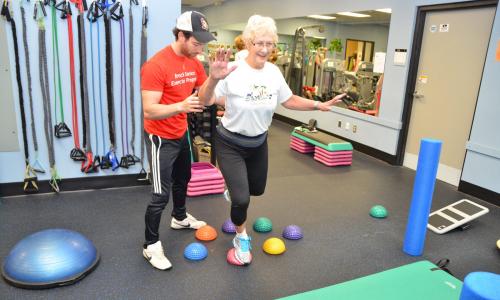
A handshake is more than just a form of greeting; it is also a way to communicate your confidence and professionalism. You may actually leave a bad impression if you do not know how to perform a handshake properly. So before getting to the right form, what kind of handshake do you have?
In his book, The Joy of Selling, J. T. Auer talks about different categories:
-
Prison Handshake: When you shake someone’s hand too long and don’t want to give the person’s hand back.
-
Jackhammer Handshake: When you shake someone’s hand too hard and too vigorously. Apparently, this kind of handshake shows power, determination, and inflexibility.
-
Robot Handshake: When you shake someone’s hand without thought or feeling and just offering your hand automatically. It is apparently a sign of disinterest and indifference.
-
Squeezing Handshake: When you are shaking someone’s hand and trying to squeeze their souls out of their hands, which Auer says is usually used by men to show power and strength to conceal their feelings of insecurity.
-
Flabby Handshake: When you give someone a limp and sloppy handshake and get this, this is the worst and most unimpressive handshake! This is a sign of someone who doesn’t have things together, which you probably don’t want to convey to your prospective employers (as irresponsible, disorganized, etc.)
Giving the Proper Handshake: What is a “Normal Handshake”?
A “normal handshake” is a brief (usually 3 or 4 seconds) and a firm handshake. From the For Dummies series, you are supposed to “extend your hand and grip the other person’s hand” so that the “web of your thumbs meet.” Make sure that you also look at the other person’s eyes while grasping their hand. Then you shake the person’s hand a couple of times. The motion is not from the shoulder but from the elbow. The handshake is supposed to end before the introduction is over.
You may also wish to avoid the freezing or clammy hand, and how do you do that? If you have cold hands, you may wish to put your hand in your pocket to warm it up. If you have clammy hands, take a quick swipe on your skirt or pants, and make sure that you do it gracefully so people wouldn’t see you doing it.
Now that you have all the right protocols to the right handshake, you may be wondering when to give a handshake. Well, according to the For Dummies again, it is all the time! And when you are unsure, you can always offer your hand first, but a handshake is especially appropriate when you:
-
Greet new coworkers or clients
-
Meet someone you have just met for the very first time or people you already know outside home or workplace
-
Acknowledge people entering your workplace or home
-
Complete a business transaction, i.e. when you leave your interview
-
Leave any sorts of social or professional events
With all the basic handshake etiquette, do you know what your handshake says about you? Get up and offer the person next to you (to avoid awkwardness, it is best that you know the person) for a handshake test! Even if you are an experienced hand-shaker, it wouldn’t hurt to improve your handshaking skills, and if you are just as inexperienced as me, let’s start practicing until it feels natural and comfortable! And remember, practice makes perfect, so start mastering your handshaking skills to make the right impression you want the next time you shake someone’s hand, with professionalism and confidence!
Beyond the Blog
- Need help nailing that interview? Check out the Interview Question Database with hundreds of questions to support you!















